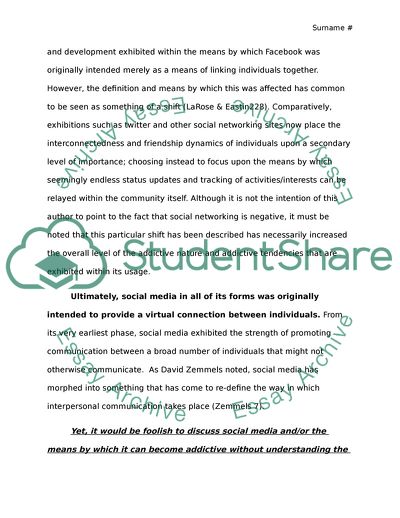Cite this document
(Social Media: Addiction and Socialization Levels Coursework Example | Topics and Well Written Essays - 1750 words, n.d.)
Social Media: Addiction and Socialization Levels Coursework Example | Topics and Well Written Essays - 1750 words. https://studentshare.org/psychology/1819527-social-media-makes-people-more-social-or-less-social
Social Media: Addiction and Socialization Levels Coursework Example | Topics and Well Written Essays - 1750 words. https://studentshare.org/psychology/1819527-social-media-makes-people-more-social-or-less-social
(Social Media: Addiction and Socialization Levels Coursework Example | Topics and Well Written Essays - 1750 Words)
Social Media: Addiction and Socialization Levels Coursework Example | Topics and Well Written Essays - 1750 Words. https://studentshare.org/psychology/1819527-social-media-makes-people-more-social-or-less-social.
Social Media: Addiction and Socialization Levels Coursework Example | Topics and Well Written Essays - 1750 Words. https://studentshare.org/psychology/1819527-social-media-makes-people-more-social-or-less-social.
“Social Media: Addiction and Socialization Levels Coursework Example | Topics and Well Written Essays - 1750 Words”. https://studentshare.org/psychology/1819527-social-media-makes-people-more-social-or-less-social.


